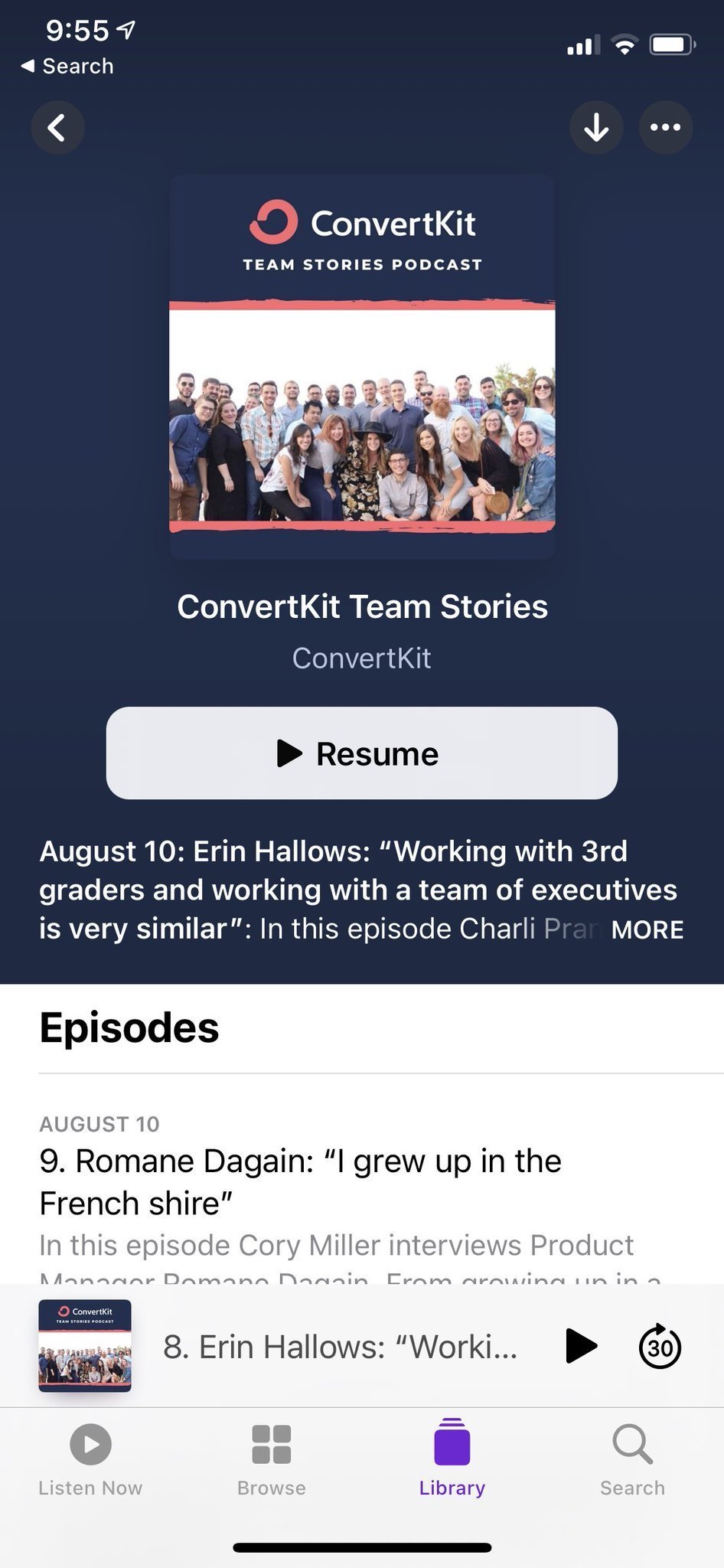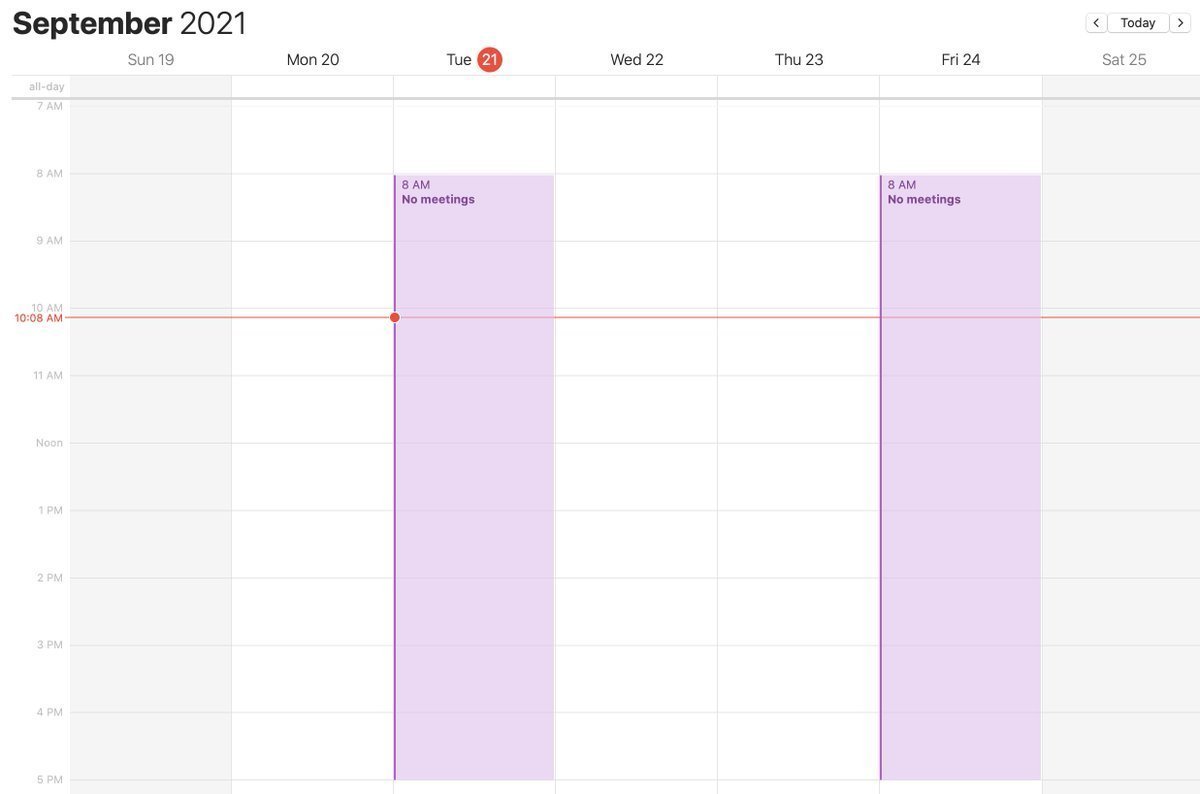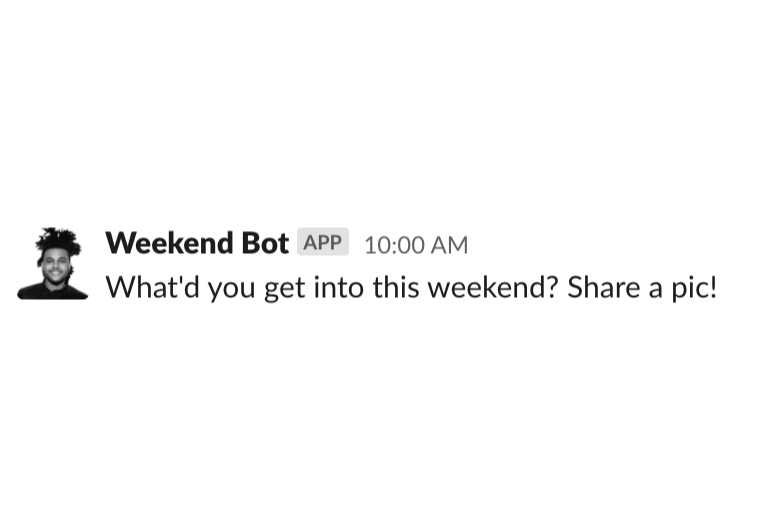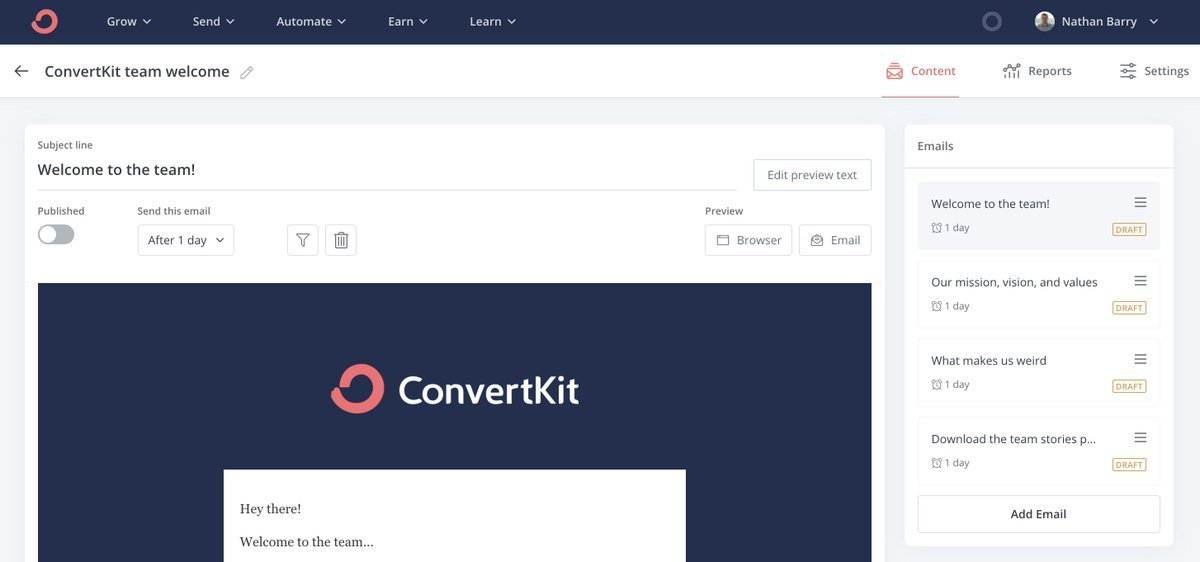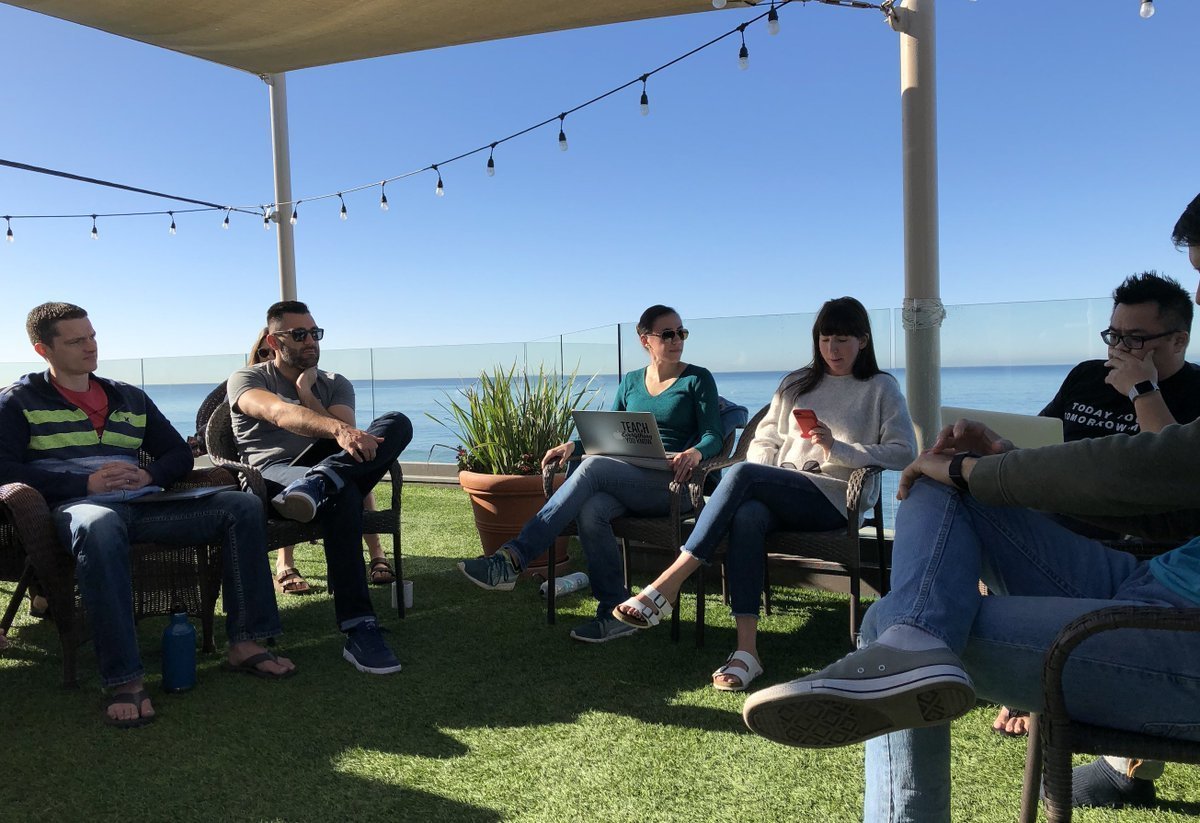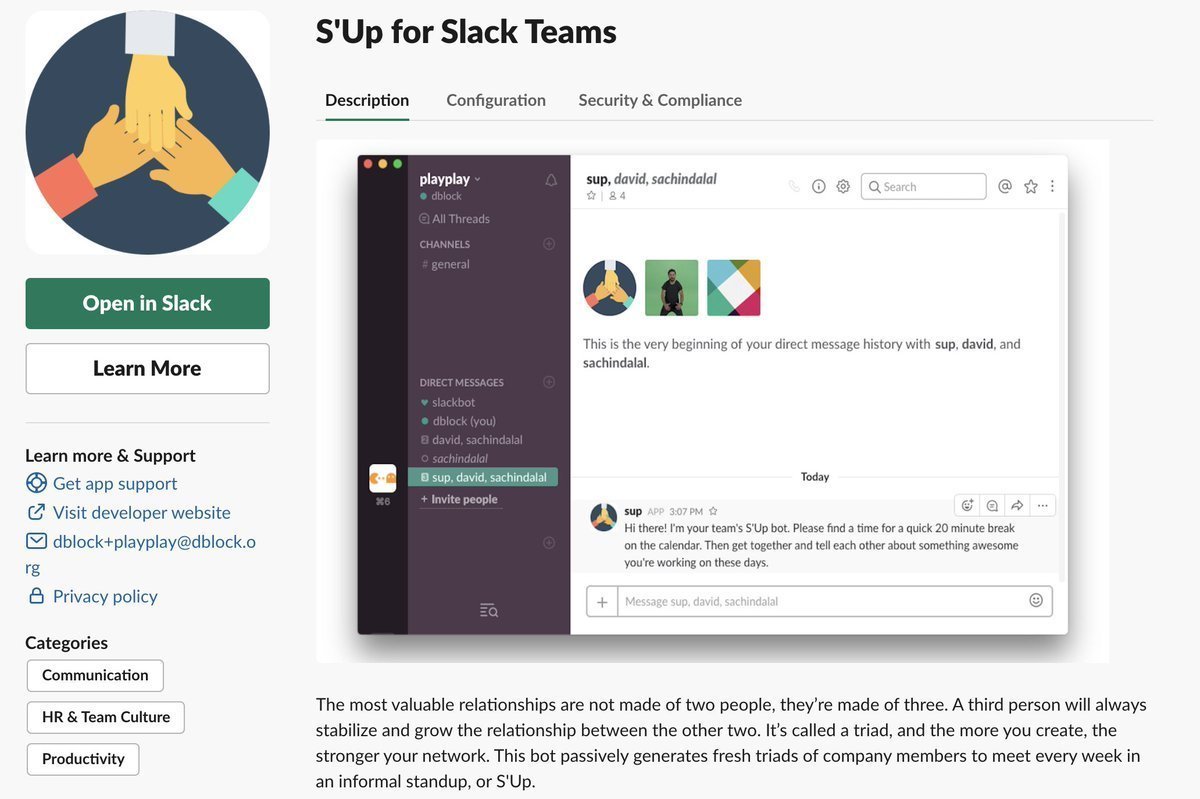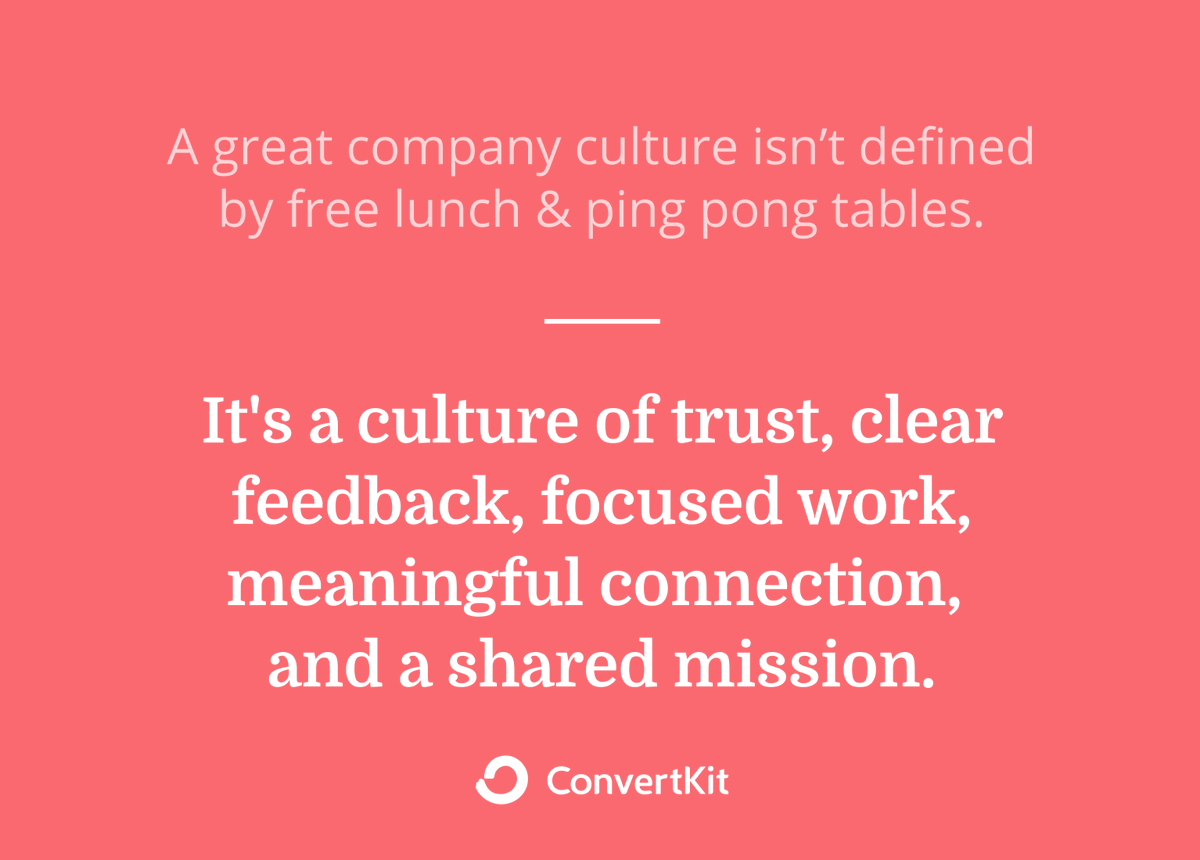Thread
Struggling to connect on your remote team?
We’ve built a 68 person remote team that’s driving $32 million in annual revenue.
Here are 10 ideas for building great culture in a distributed team:
💻🌐
We’ve built a 68 person remote team that’s driving $32 million in annual revenue.
Here are 10 ideas for building great culture in a distributed team:
💻🌐
1. Create a private team stories podcast.
Everyone has the same get to know you conversations starting from zero. Instead interview them about their life story for a private internal podcast.
The whole team can listen and get a head start on building relationships.
Everyone has the same get to know you conversations starting from zero. Instead interview them about their life story for a private internal podcast.
The whole team can listen and get a head start on building relationships.
2. Build a culture of written, asynchronous communication
This will save so many meetings, avoid people feeling left out if they weren't in the meeting, and protect focused work.
Your team will also be forced to clearly articulate and refine their ideas.
This will save so many meetings, avoid people feeling left out if they weren't in the meeting, and protect focused work.
Your team will also be forced to clearly articulate and refine their ideas.
3. Shared “no meeting” days.
Everyone has the same day for focused work each week. Team members can have days that they don’t need to get camera ready (e.g. hair, make-up, etc) if they don’t want to.
At @ConvertKit we do Tuesdays and Fridays, which are wildly productive.
Everyone has the same day for focused work each week. Team members can have days that they don’t need to get camera ready (e.g. hair, make-up, etc) if they don’t want to.
At @ConvertKit we do Tuesdays and Fridays, which are wildly productive.
4. Ask "What did you get into this weekend?"
Every Monday morning we have a bot that posts to Slack asking people to share a photo (or a few) from the weekend. It's a great way to get to know co-workers on a personal level and see their families, interests, and lives.
Every Monday morning we have a bot that posts to Slack asking people to share a photo (or a few) from the weekend. It's a great way to get to know co-workers on a personal level and see their families, interests, and lives.
5. Create an automated email sequence for new team members
Explain how you work, where to find important things (like the joke slack channels), fun facts about team members, explain inside jokes, & more.
It's all automated so you can curate their first 30+ days at the company.
Explain how you work, where to find important things (like the joke slack channels), fun facts about team members, explain inside jokes, & more.
It's all automated so you can curate their first 30+ days at the company.
6. Host "unsolicited feedback" sessions
This is where a small team (usually 4-8 people) gathers to talk about someone in the hot seat as if they aren't there for 10 min. When it's your turn all you can do is sit & take notes, then you get 5 min to respond.
Here are the prompts:
This is where a small team (usually 4-8 people) gathers to talk about someone in the hot seat as if they aren't there for 10 min. When it's your turn all you can do is sit & take notes, then you get 5 min to respond.
Here are the prompts:
a) What does this person do that you find remarkable? What do you brag about them to other people?
b) If they were up for the promotion of their career in 6 mo, what would you tell them now to give them the best chance of getting it?
b) If they were up for the promotion of their career in 6 mo, what would you tell them now to give them the best chance of getting it?
c) Assume you're working with this person for the next 10 years. What behavior isn't a big deal now, but will get really annoying or frustrating over that time?
This results in the best compliments, the most constructive feedback, and a culture of direct, candid conversations.
This results in the best compliments, the most constructive feedback, and a culture of direct, candid conversations.
7. Mandatory fun days
With teams feeling burnt out force everyone to take the same day off. That means you don't have to come back to a mountain of slack messages and emails.
Come back & share a photo.
We did a 3-day weekend for the last 3 months of the year.
With teams feeling burnt out force everyone to take the same day off. That means you don't have to come back to a mountain of slack messages and emails.
Come back & share a photo.
We did a 3-day weekend for the last 3 months of the year.
8. Schedule S'Ups
We use a bot to pick 3 people at random each week for a 30 min catch up / get to know you call.
A triad means you always get a dynamic group from a cross section of the team. This builds relationships and breaks silos across product, eng, ops, growth, etc
We use a bot to pick 3 people at random each week for a 30 min catch up / get to know you call.
A triad means you always get a dynamic group from a cross section of the team. This builds relationships and breaks silos across product, eng, ops, growth, etc
9. Host retreats 2x a year
Regularly gathering your team in person is one of the most important things you can do. 2x a year ended up being the perfect cadence for us.
We split our time: 33% work & strategy, 33% personal connection, and 33% downtime & fun.
Regularly gathering your team in person is one of the most important things you can do. 2x a year ended up being the perfect cadence for us.
We split our time: 33% work & strategy, 33% personal connection, and 33% downtime & fun.
The biggest mistake I see companies make is trying to get too much work done on a retreat.
Connections get accelerate so much through great memories and shared experiences.
You can have everyone record footage for a vlog to let the memories carry through to the next retreat.
Connections get accelerate so much through great memories and shared experiences.
You can have everyone record footage for a vlog to let the memories carry through to the next retreat.
10. Donate money together
At a team retreat we divided our team into groups of 4 with one goal: give away $10,000 in $100 at a time.
With 50 people on the team that meant each group had to find about 12 charities to support. Then we regrouped to share who we donated to & why.
At a team retreat we divided our team into groups of 4 with one goal: give away $10,000 in $100 at a time.
With 50 people on the team that meant each group had to find about 12 charities to support. Then we regrouped to share who we donated to & why.
What followed were the best stories that made for connection points:
Someone donated to education grants because they were first in their family to go to college.
Cancer research because they'd lost a loved one.
Pet rescue because that's where they'd found a best friend.
Someone donated to education grants because they were first in their family to go to college.
Cancer research because they'd lost a loved one.
Pet rescue because that's where they'd found a best friend.
...and so many more.
$100 isn't that much, so it would be fair to argue the money would be better donated to a single charity, but our main goal was life stories and points of connection.
Give it a try with your team. You'll all get a peek into what your coworkers value & why.
$100 isn't that much, so it would be fair to argue the money would be better donated to a single charity, but our main goal was life stories and points of connection.
Give it a try with your team. You'll all get a peek into what your coworkers value & why.
Don't let anyone tell you company culture is defined by free lunches and ping pong tables.
It's a culture of trust, clear feedback, focused work, meaningful connection, and a shared mission.
It's a culture of trust, clear feedback, focused work, meaningful connection, and a shared mission.
If you think you'll use some of these tips, share the first tweet to help more companies build intentional cultures:
Also follow me @nathanbarry to get more threads on building great companies.
Also follow me @nathanbarry to get more threads on building great companies.
Mentions
See All
David Perell @david_perell
·
Sep 27, 2022
One of your best threads yet.
